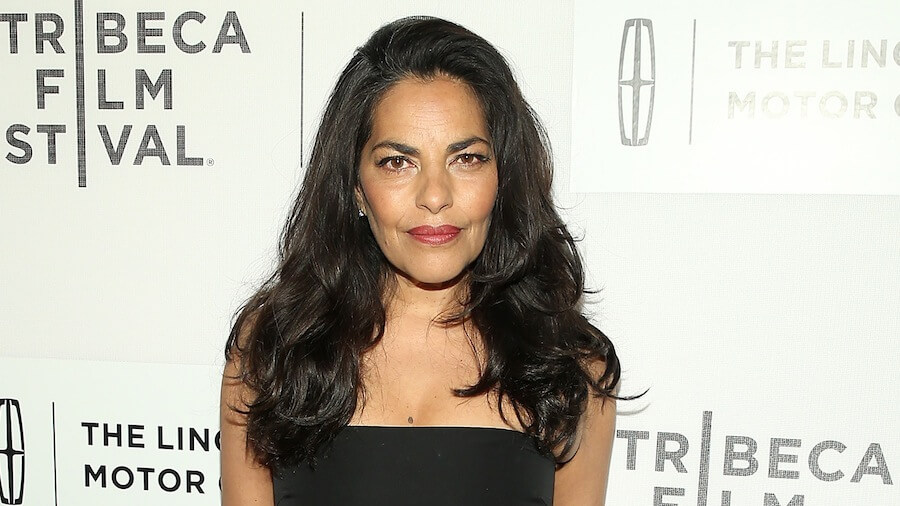Sarita Choudhury thinks she’s bad news. The actress lives in Williamsburg, which is now so wealthy the artistic types who made it a hot spot can no longer afford it.
“I feel like everywhere I’ve lived, all through my life, has become gentrified,” Choudhury tells us. “So I feel like I’m the cause. I’m like, ‘Here we go again!’ You always go where you think is artistic and cool. But that just means it was once a haven.” RELATED: “A Hologram for the King” is a renegade Tom Hanks movie As it happens, Choudhury is here to talk “A Hologram for the King,” which concerns a form of gentrification on the other side of the world. Based on Dave Eggers’ 2012 novel, it stars Tom Hanks as an American salesman who heads to Saudi Arabia to sell a new gizmo to the nation’s king, who is trying to turn a patch of desert into a thriving, modern, moneyed metropolis. Choudhury plays a doctor in the nearby city of Jeddah who first treats Hanks’ character and eventually begins a hesitant romance. The production wasn’t allowed to shoot in Saudi Arabia; they wound up settling for Morocco. For Choudhury, it was a real eye-opener.
“I was shocked by the welcoming nature of people. Even the people who didn’t have much, it was like, ‘Come in, eat our food, drink.’ I thought, ‘What happened to that here, where we have more money, more access. That doesn’t happen,” Choudhury explains. “You don’t get invited into a random house just because you’re walking down the street and someone’s smiling. I miss that.” She also found it was the first place where the people “looked like me,” she says. Choudhury is half-Indian, half-British, and she grew up in Italy. Even in a vast melting pot like New York, with its enclaves of specific cultures and ethnicities, she doesn’t always feel she fits in. “Here you become a New Yorker, as opposed to where you’re from,” she says. “You’re not thinking about yourself as anything but a New Yorker.”
RELATED: 6 films that used Prince brilliantly “A Hologram for the King” may sound like a broad comedy about an American abroad, but it’s subtly — and not so subtly — progressive and more about him being consumed by another culture. Alone in America, he increasingly finds real connections in Saudi Arabia. “America is where you go for your dreams. He’s leaving that and going to a country the world thinks has things like oppression and customs that are more severe,” she explains. “He goes there and finds freedom and love and himself. It inverts our perceptions. It’s more about finding where you’re happy regardless of where you think your ambitions and dreams should lie.” Even using Tom Hanks is, she finds, subversive. “We think of him as the American superstar. And yet to have him fall into a friendship with his [Saudi] driver and have a love story with his doctor — he’s an everyman that people can identify with and think, ‘This can happen to you. You can actually have connections with another culture.” She argues it might not have worked without someone of his stature. “If you pick an unknown actor it becomes an independent, edgy movie, and it doesn’t give the average viewer access to that,” she points out. “It’s a clever, subtle way to do that.” Choudhury has been very visible of late, having appeared on “Homeland” as the wife of Mandy Patinkin’s Saul, as Egeria in the last two “Hunger Games” entries and, currently, on “Blindspot.” She was also Ben Kingsley’s traditional Indian wife in last year’s Queens-set indie “Learning to Drive.” RELATED: Tribeca interview: Demetri Martin becomes a director with “Dean” But she’s perhaps most famous for playing the co-lead in Mira Nair’s cross-cultural 1991 romance “Mississippi Masala,” in which she shocked her Indian family by rolling around with Denzel Washington. Choudhury has talked about finding it difficult to land work after the film; she was still waiting tables as it was playing the Angelika Film Center. Hollywood wasn’t sure what to do with her. “They’d say, ‘You’re not Mexican, you’re not this.’ They didn’t know where to place me. But I never felt confused,” she said. She’s always felt comfortable with herself, even if Hollywood was perplexed. Even if when she’s not working she’s fine with that, too. “I’m just happy to be reading and biking around. My whole life is geared towards dancing and going to the theater or traveling to India. If I get the opportunity to act it’s such a joy to put everything towards something,” Choudhury tells us. “But when I’m not working I get addicted to not working. That’s why it’s hard to be an actor: not the lack of work but what to do with your downtime.”
Sarita Choudhury on the subversive nature of ‘A Hologram for the King’

Getty Images
Follow Matt Prigge on Twitter @mattprigge


















